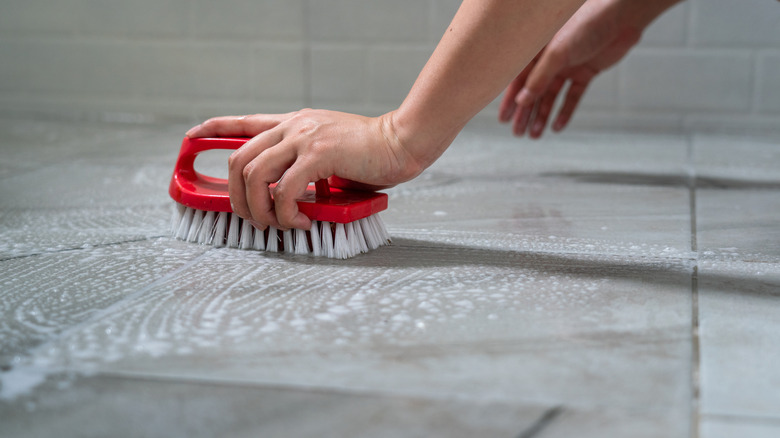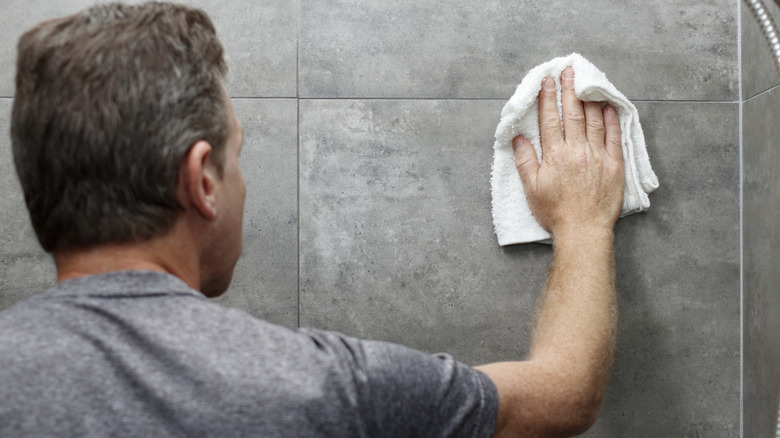The Cleaner A Professional Housekeeper Would Never Use On Stone Shower Tiles
We may receive a commission on purchases made from links.
Thanks to its aesthetic appeal, natural stone is an increasingly popular tile material used in showers. Some of the most sought-after types of stone tile you can use in your shower include limestone, granite, soapstone, slate, and marble, all of which are available in different colors for a truly customized space. To keep your shower feeling luxurious, you will want to clean your stone shower at least once per week. Before you use just any commercial cleaner though, it's important to steer clear of any ingredients that could potentially damage stone tiles. Bleach is one cleaning ingredient in particular you should never use in a stone tiled shower.
Bleach is a harsh chemical that may have a place in home cleaning and disinfecting when used as directed, and you will need to make sure to take all the crucial precautions required before using this substance. However, this ingredient is too corrosive for stone, and it may break down the protective sealant put in place during the initial shower installation process. While you might not notice any damage at first, the stone tiles may warp, stain, or even grow mold over time. Also, some stone materials are more porous than others, such as slate and marble, which makes them even more vulnerable to damage from bleach. To protect your investment and keep your stone shower tiles in good shape for years to come, it's important to use other cleaning agents.
Other cleaning agents to avoid with stone showers, and what to use instead
Aside from bleach, there are other cleaning agents you should also avoid using on stole tiles. Not all natural cleaning ingredients in your home are suitable for stone shower tiles, even if they contain "natural" ingredients. Among some of the worst choices are acids, such as white vinegar and lemon. Instead, if you're wanting a DIY option, combine dish soap with warm water and work the solution over the tiles and in between the grout with a soft cloth for a gentle clean that won't damage the stone or break the sealant.
Alternatively, you may consider using a commercial product specifically made for cleaning stone tiles in shower settings. One example is Simple Green All-Purpose Cleaner, which is made for a variety of surfaces, including stone. Not only is this product free of the harsh chemicals that can ruin stone over time, but it is also considered eco-friendlier and safer for human health. To use, the manufacturer recommends combining 4 tablespoons of the all-purpose cleaner along with 2 ½ cups of water. Place in a spray bottle and shake well before use. After spraying liberally along the shower surface, scrub the saturated area with a sponge or soft-bristled brush before rinsing off with clean water. Then, dry the stone with a clean towel.

